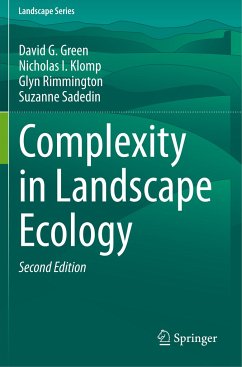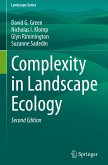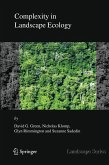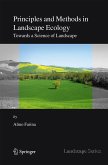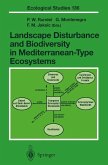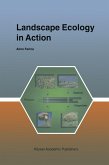This book examines key concepts and analytical approaches in complexity theory as it applies to landscape ecology, including complex networks, connectivity, criticality, feedback, and self-organisation. It then reviews the ways that these ideas have led to new insights into the nature of ecosystems and the role of processes in landscapes.
The updated edition explores innovations in ecotechnology, including automated monitoring, big data, simulation and machine learning, and shows how they are revolutionizing ecology by making it possible to deal more effectively with complexity. Addressing the topic in a progression of ideas from small to large, and from simple to sophisticated, the book examines the implications of complexity for major environmental issues of our time, particularly the urgencies of climate change and loss of biodiversity. Understanding ecological complexity is crucial in today's globalized and interconnected world. Successful management of the world'secosystems must combine models of ecosystem complexity with biodiversity, environmental, geographic, and socioeconomic data. The book examines the impact of humans on landscapes and ecosystems, as well as efforts to embed sustainability, commerce and industrial development in the larger context of ecosystem services and ecological economics. Well-established as researchers in the field, the authors provide a new perspective on current and future understanding of complexity in landscape ecology.
The new edition offers a non-technical account of the topic, so it is both accessible and informative for general readers. For students of ecology, it provides a fresh approach to classical ideas.
The updated edition explores innovations in ecotechnology, including automated monitoring, big data, simulation and machine learning, and shows how they are revolutionizing ecology by making it possible to deal more effectively with complexity. Addressing the topic in a progression of ideas from small to large, and from simple to sophisticated, the book examines the implications of complexity for major environmental issues of our time, particularly the urgencies of climate change and loss of biodiversity. Understanding ecological complexity is crucial in today's globalized and interconnected world. Successful management of the world'secosystems must combine models of ecosystem complexity with biodiversity, environmental, geographic, and socioeconomic data. The book examines the impact of humans on landscapes and ecosystems, as well as efforts to embed sustainability, commerce and industrial development in the larger context of ecosystem services and ecological economics. Well-established as researchers in the field, the authors provide a new perspective on current and future understanding of complexity in landscape ecology.
The new edition offers a non-technical account of the topic, so it is both accessible and informative for general readers. For students of ecology, it provides a fresh approach to classical ideas.
From the reviews of the first edition:
"This book is meant to be a 'gentle introduction' to the field of complexity and landscape ecology. ... the book succeeds in its goal ... . the most inspiring idea in the book is that seemingly complex ecological phenomena can often be explained by simple assumptions ... . As such, this book could serve as a springboard for stimulating research about other general ecological principles ... . I recommend the book to those who need a simple introduction to this complex topic ... ." (Erica A. H. Smithwick, Ecology, Vol. 87 (11), November, 2006)
"This book is meant to be a 'gentle introduction' to the field of complexity and landscape ecology. ... the book succeeds in its goal ... . the most inspiring idea in the book is that seemingly complex ecological phenomena can often be explained by simple assumptions ... . As such, this book could serve as a springboard for stimulating research about other general ecological principles ... . I recommend the book to those who need a simple introduction to this complex topic ... ." (Erica A. H. Smithwick, Ecology, Vol. 87 (11), November, 2006)

